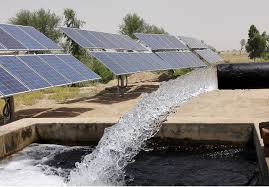In today’s world, where sustainable solutions are becoming solar well pump increasingly important, the utilization of solar energy has emerged as a game-changer. Solar power offers an eco-friendly and cost-effective alternative to conventional energy sources. One of the most innovative applications of solar technology is the solar pump. These devices are revolutionizing the agricultural sector by providing a reliable source of power to draw water for irrigation, livestock, and various farming activities.
The Solar Pump Advantage
Solar pumps, equipped with photovoltaic panels, convert sunlight into electricity. This electricity powers a water pump, enabling farmers to draw water from wells, rivers, or other sources without the need for conventional electricity or fuel-powered generators. These pumps are particularly beneficial for farmers in remote or off-grid areas, where access to reliable electricity can be challenging. They reduce dependence on fossil fuels and decrease greenhouse gas emissions, making them a win-win solution for both farmers and the environment.
Economic Benefits
The financial benefits of solar pumps are substantial. With lower operational and maintenance costs compared to traditional pumps, farmers can save on fuel, maintenance, and repair expenses. Solar pumps are a one-time investment that can provide long-term returns, reducing the overall cost of farming. Additionally, the excess energy generated by solar pumps can be stored or sold back to the grid, creating an additional revenue stream for farmers.
Enhancing Agricultural Productivity
Solar pumps play a pivotal role in increasing agricultural productivity. They provide a consistent and efficient water supply, enabling farmers to irrigate their fields regularly. This leads to improved crop yields and enhanced food security. The precision and reliability of solar pumps also allow for better control over the distribution of water, ensuring that every plant receives the right amount of moisture. This not only conserves water but also minimizes the risk of over-irrigation, which can harm crops and the environment.
